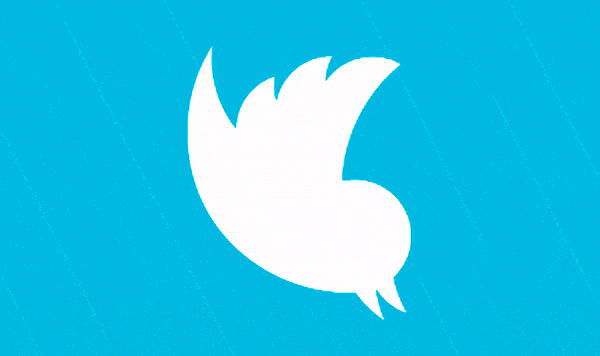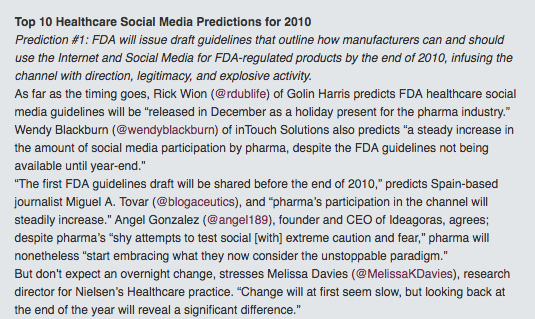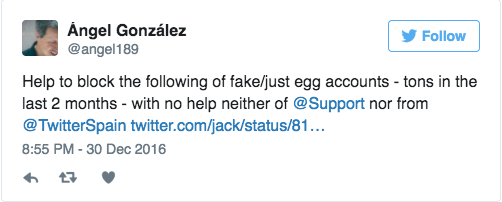Back in November 2008 I opened my personal account on Twitter. I did not have any idea about how to use it, or the benefits it could provide me. Anyway, I was really intrigued by it. I remember that a few days before I had heard about this social network at an IAB Festival that took place in Madrid. The 26th of that month I wrote my first tweet:
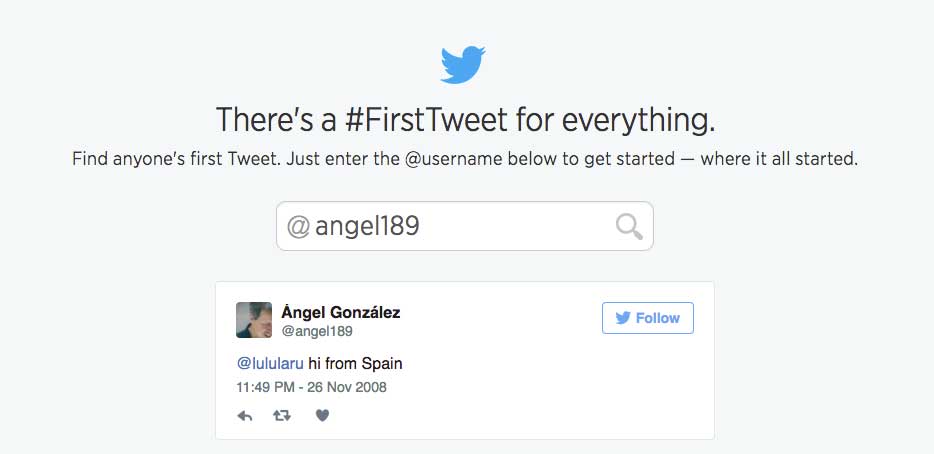
As with kids, Twitter did not come with an instructions manual. So, it was time to explore and discover the potential and value of this tool. As I got into it, I started to realize that Twitter was really whatever its users wanted it to be. They, the founders, provided the space and the technology, but the users were the ones shaping it … and giving it life
- In 2007, Chris Messina @chrismessina, then a Google employee, invented the hashtag in order to organize Twitter conversations into topics
- This invention, so simple yet amazing, was key to the organization of spontaneous meetings on Twitter, and to connecting and discussing with other users particular subjects in tweetups or tweetchats. I will never forget the first one I attended: 7 August, 2009 from 1 to 2 pm CET, with the hashtag #hcsmeu, founded and moderated by Silja Chouquet @whydotpharma and Andrew Spong @andrewspong. I am very grateful to them
- Pioneering users like Fabio Gratton @skypen took advantage of Twitter to crowdsource ideas in 140 characters, in this particular case the Healthcare Social Media Predictions for 2010. After compiling the tweets, he published the outcome of this breakthrough survey in the digital edition of MedAdNews

- During those early years of Twitter independent developers started to show us visually how the conversation was taking place around the world through geolocation maps
- Twitter’s first users could start to utilize it in a more professional way with the help of dashboards apps, like Tweetdeck, originally created by Iain Dodsworth @iaindosworth and released in 2008
- Companies like Radian6, UberVu, SocialBro and Symplur – among others – provided users with intelligence information long before Twitter started to facilitate its own – and always limited – statistics
My first, clueless tweet was also an initial step towards an amazing discovery: connecting and meeting with people from all around the world, socializing with them, sharing and exchanging information and opinions, etc., all this driven by a spirit of absolute generosity. I think that during those early years the twittersphere featured a feeling of belonging to a horizontal community, with no hierarchies, a magical digital space in which the opinion of the other Twitter communicators was considered, respected, discussed and valued. Despite the individualities, personalities, principles and beliefs of the different tweeterers, the conversations and interactions were always driven by respect. Respect was the only unwritten rule.
I think that during those early years of Twitter’s adoption, most of its use was professional. In my particular case Twitter was key to reinventing me. This social network helped me to fully understand those 95 thesis of the Cluetrain Manifesto, written by a few visionaries back in 1999, whose first thesis was that Markets are Conversations.
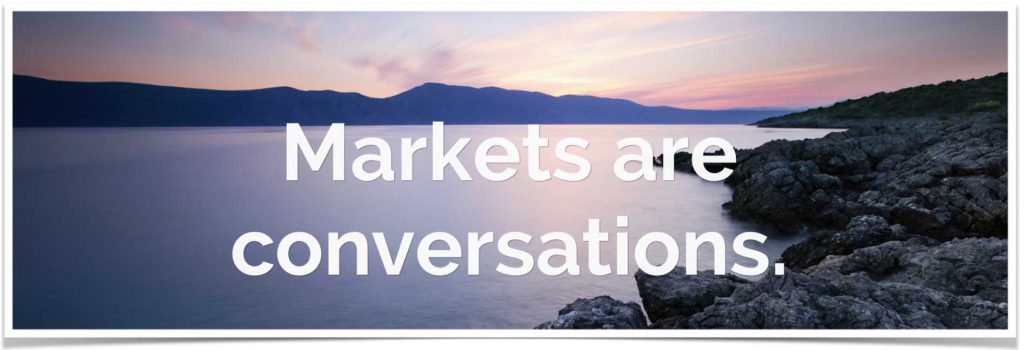
Tapscott and Williams were absolutely right. As they stated in their best-selling book Wikinomics (the 1st edition was published in December 2006), mass collaboration was changing everything. The wisdom of the people, now connected and empowered with access to the Internet and the Social Networks, was driving the radical transformation of multiple industries and sectors: News and Information, Music, Photography, Accommodations, Transportation…and of course, Communications, Branding and Marketing.

This was Digital Darwinism, which threatened and is still challenging the status quo and the Establishment.
I always thought that Twitter was the social network most in line with the legacy of Joseph Schumpeter, the prophet of innovation and the process of creative destruction, or destroying to rebuild.
Indeed, many companies, brands and institutions began to use Twitter as a new way to connect, create bonds and nurture personal relationships with their (no longer passive) consumers. In other words, Twitter as a complementary or even alternative way of building brands. This does not mean, in my opinion, that all those companies were utilizing this social network well: a lack of strategy, a lack of listening and intelligence, a lack of real value in the content, a lack of interaction, etc. These problems, by the way, still remain in many cases.
My big concern and what has me flabbergasted about Twitter is what has led me to write this post. I want to report and point out the following:
- The current northbound course of Twitter, which started from the moment they became a publicly traded company
- Most of the updates and new Twitter features barely have provided value to its users
- Twitter advertising – of course, they have to monetize the platform – for me has always been annoying, bothersome and intrusive. And worse, I believe that Twitter advertising violates the core principle of social media marketing: brands are built handing over the voice to the members of one’s target audience, who should be the ones deciding whether to promote something through word of mouth and advocacy, thereby becoming brand evangelizers, or to ignore it, or rise up against it, generating a groundswell crisis.
- The permissiveness or inability of Twitter to deal with issues such as anonymity (either of individuals or groups), fake accounts, and unsocial behaviors like trolling, harassment, threats and abuse.
- The inexistence and absence of interaction with Twitter when needed. In my particular experience, with Twitter Support and Twitter Spain. In both cases … a deep and sonorous silence.

- Tweeterers were the ones shaping Twitter and making it attractive. Paradoxically, many of those users – BTW, none of the early adopters – have literally destroyed the magic of this tool when it comes to its personal use
- Many users got into a hierarchy/superiority race, or competition, in which the number of followers was one of the indicators of authority in this space

- Vanity, a natural quality of human beings, has led to a sick spiral that has nothing to do with the social spirit: I want to be an influencer, I want to be listed and referenced, I want to scale positions on the index like Klout or Kred, I want to be acclaimed by others, I want to reach the category of a Twitter influencer…I´m very pleased to meet myself
- Sellers of Twitter followers appeared…because there was demand amongst buyers
- I think that traditional mass media, as well as some celebrities and politicians while popularizing Twitter and leading it into the mainstream, have trivialized its use
- Some brands, companies and institutions decided to burst into Twitter conversations like elephants in a china shop, invading timelines with purely commercial tweets, using incomprehensible hashtags, ignoring protocols of dialogue and interaction … and with massive pressure in terms of frequency, promoting tweets featuring the same messages and advertising tones as those used in traditional media
- Many users got into a hierarchy/superiority race, or competition, in which the number of followers was one of the indicators of authority in this space
Dear Twitter: I have always said that you are my favorite social network. I have expressed many times, both in your space and in public keynotes, the love I have for you.

But now, I am sorry to say to you that, on a personal level, I´m starting to feel a kind of disaffection towards you. I would like you to deal with this. Please bring back to us all the original values that made you unique: connectivity, knowledge, humanity, reach, and excitement. I hope that you can regain the magic of your digital ecosystem.
Oh Twitter, if only they could see you now! My, how you´ve changed!
What´s wrong, Twitter?
By Ángel González
Ideagoras

